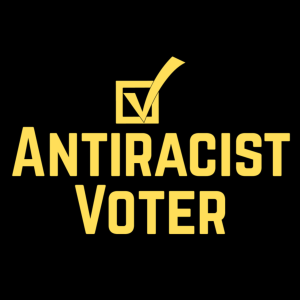
Antiracist Voter
News & Politics Podcasts
The murder of George Floyd created a moment of reflection and rededication to racial equality. But moments are ephemeral. Americans have a notoriously short attention span.
How do we maintain momentum so that the moment becomes a movement?
How do we translate the demands of protests into the domain of policy?
Antiracist ideas are activated in antiracist policy, especially in local elections.
We focus on criminal justice, economic justice, environmental justice, education, housing, health, immigration, and voting rights. We talk about problems, but we don’t stop there. We talk about solutions. Who is getting it right?
Location:
United States
Genres:
News & Politics Podcasts
Description:
The murder of George Floyd created a moment of reflection and rededication to racial equality. But moments are ephemeral. Americans have a notoriously short attention span. How do we maintain momentum so that the moment becomes a movement? How do we translate the demands of protests into the domain of policy? Antiracist ideas are activated in antiracist policy, especially in local elections. We focus on criminal justice, economic justice, environmental justice, education, housing, health, immigration, and voting rights. We talk about problems, but we don’t stop there. We talk about solutions. Who is getting it right?
Language:
English
Can Truth and Reconciliation Work in Minneapolis?
Duration:00:21:21
The Most Powerful, Invisible Position in the State, with De’Vonna Pittman
Duration:00:21:22
Your Voting Rights, with Jorge Vasquez, Advancement Project
Duration:00:29:15
A Solution to Undocumented Immigration, with Laz Ayala, Illegal the Project
Duration:00:29:36
Racial Wealth Inequality and Black Asset Poverty, with Dr. Lori Latrice Martin
Duration:00:32:15
If We Want Better, We Have to Vote for Better, With Alberder Gillespie, Candidate Congressional District MN-04
Duration:00:17:33
In Minneapolis, Police Training Wasn’t Enough, with Jesse Jannetta, Urban Institute
Duration:00:30:39
Husniyah Dent Bradley, Candidate, MN House District 63B
Duration:00:18:15
How to Move Beyond Allyship, with Dawn Johnson, White Elephant Consulting
Duration:00:37:48
How to Reform the Police, with Seth W. Stoughton
Duration:00:29:43
How Do You Dismantle Systemic Racism?
Duration:00:08:15